
Dame Daphne du Maurier, Lady Browning, was an English novelist, biographer and playwright. Her parents were actor-manager Sir Gerald du Maurier and his wife, actress Muriel Beaumont. Her grandfather George du Maurier was a writer and cartoonist.
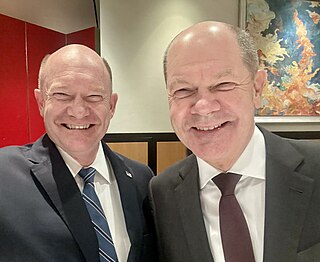
A look-alike, or double, is a person who bears a strong physical resemblance to another person, excluding cases like twins and other instances of family resemblance.
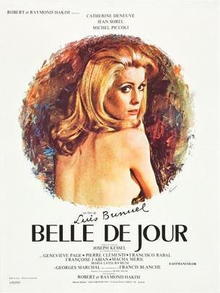
Belle de Jour is a 1967 surrealist erotic psychological drama film directed by Luis Buñuel, and starring Catherine Deneuve, Jean Sorel, and Michel Piccoli. Based on the 1928 novel Belle de Jour by Joseph Kessel, the film is about a young woman who spends her midweek afternoons as a high-class prostitute, while her husband is at work.

Sir Gerald Hubert Edward Busson du Maurier was an English actor and manager. He was the son of author George du Maurier and his wife, Emma Wightwick, and the brother of Sylvia Llewelyn Davies. In 1903, he married the actress Muriel Beaumont, with whom he had three daughters: writers Angela du Maurier (1904–2002) and Dame Daphne du Maurier (1907–1989), and painter Jeanne du Maurier (1911–1997). His popularity was due to his subtle and naturalistic acting: a "delicately realistic style of acting that sought to suggest rather than to state the deeper emotions". His Times obituary said of his career: "His parentage assured him of engagements in the best of company to begin with; but it was his own talent that took advantage of them."
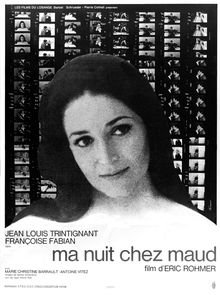
My Night at Maud's, also known as My Night with Maud (UK), is a 1969 French New Wave drama film by Éric Rohmer. It is the third film in his series of Six Moral Tales.

The New Swiss Family Robinson is a 1999 American adventure film directed by Stewart Raffill. The film is based on the 1812 novel The Swiss Family Robinson by Johann David Wyss, and stars Jane Seymour, David Carradine, James Keach, John Mallory Asher, Blake Bashoff, and Jamie Renée Smith.

The House on the Strand is a novel by Daphne du Maurier, first published in the UK in 1969 by Victor Gollancz, with a jacket illustration by her daughter, Flavia Tower. The US edition was published by Doubleday.

The Scapegoat is a 1959 British mystery film directed by Robert Hamer and starring Alec Guinness, Nicole Maurey and Bette Davis. The screenplay was by Hamer and Gore Vidal based on the 1957 novel of the same name by Daphne du Maurier.

Françoise Marie de Bourbon was the youngest illegitimate daughter of King Louis XIV of France and his maîtresse-en-titre, Françoise-Athénaïs de Rochechouart, Marquise de Montespan. At the age of 14, she married her first cousin Philippe d'Orléans, the future regent of France during the minority of Louis XV. Through two of her eight children, she became the ancestress of several of Europe's Roman Catholic monarchs of the 19th and 20th centuries—notably those of Belgium, Italy, Portugal, Spain, and France.
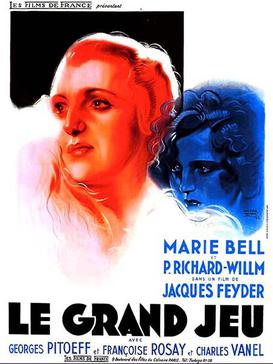
Le Grand Jeu is a 1934 French drama film directed by Jacques Feyder and starring Pierre Richard-Willm, Marie Bell, Charles Vanel and Françoise Rosay. It is a romantic drama set against the background of the French Foreign Legion, and the film was an example of poetic realism in the French cinema. The title Le Grand Jeu refers to the practice of reading the cards. Blanche asks whether her client wants the 'full works', the whole story: "Alors... je te fais le grand jeu?"
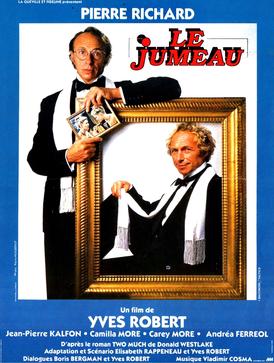
The Twin is a 1984 French comedy film directed by Yves Robert, starring Pierre Richard, Camilla More and Carey More. Based on Donald Westlake's novel Two Much, the story involves an indebted Frenchman who meets a pair of beautiful and rich American twin sisters. Inventing a twin brother, he manages to marry both and live their opulent lifestyle.
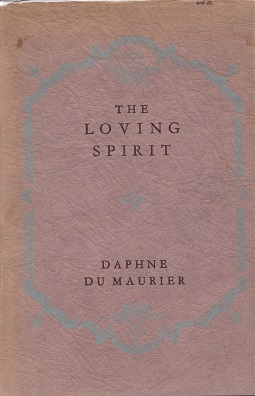
The Loving Spirit was the first novel of Daphne du Maurier and was published in 1931 by William Heinemann. The book takes its name from a line in the poem "Self-Interrogation" by Emily Brontë.
J'accuse! is a 1938 French war film directed by Abel Gance and starring Victor Francen. It is a remake of the 1919 film of the same name, which was also directed by Gance.
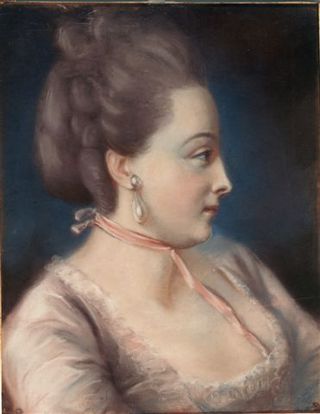
Michelle Sentuary, married name Jean-Cyrille Guesnon de Bonneuil, was a French overseas agent during the French Revolution and First French Empire. Inspiring André Chénier and others, she was a lady "celebrated for her beauty and her agreeable spirit" according to the formula of Charles de Lacretelle himself a friend of Chénier. She stands for thousands of women in modern and contemporary historiography, and has had several biographies in biographical dictionaries. She was the mother of Amédée Despans-Cubières.
The Scapegoat is a British film adaptation of Daphne du Maurier's 1957 novel of the same name. The drama is written and directed by Charles Sturridge and stars Matthew Rhys as lookalike characters John Standing and Johnny Spence. It was broadcast on ITV on 9 September 2012.
Jeanne Renée Deneuve, known professionally as Renée-Jeanne Simonot, was a French actress and voice artist. She was married to actor Maurice Dorléac, the mother of actresses Catherine Deneuve and Françoise Dorléac and the grandmother of actor Christian Vadim and actress Chiara Mastroianni.

The Secret of Madame Blanche is a 1933 American pre-Code drama film directed by Charles Brabin and written by Frances Goodrich and Albert Hackett. The film stars Irene Dunne, Lionel Atwill, Phillips Holmes, Una Merkel and Douglas Walton. The film was released on February 3, 1933, by Metro-Goldwyn-Mayer.

Male Hunt is a 1964 comedy film directed by Édouard Molinaro and starring Jean-Claude Brialy, Catherine Deneuve, Marie Laforêt, Claude Rich, Françoise Dorléac and Jean-Paul Belmondo.

The Glass-Blowers is a 1963 novel by Daphne du Maurier.
















